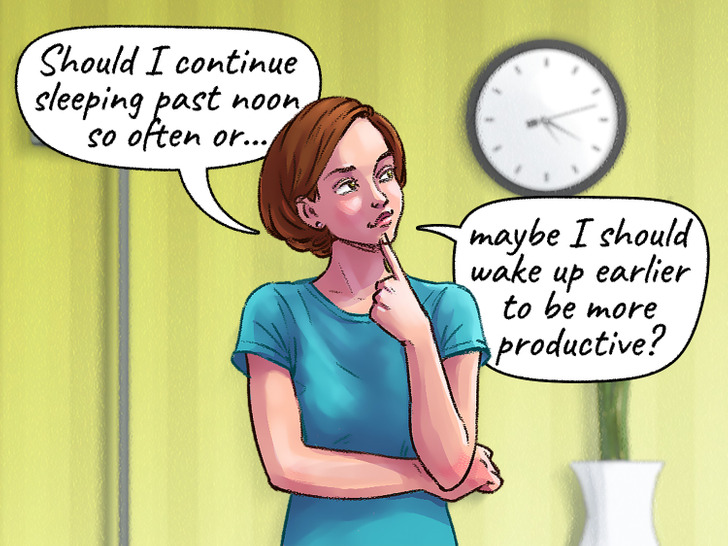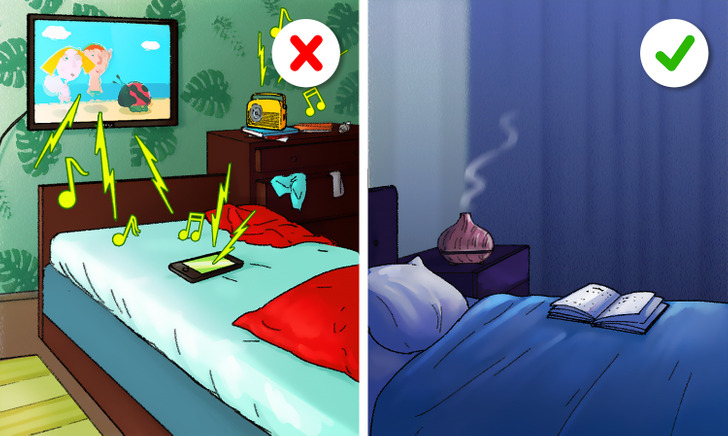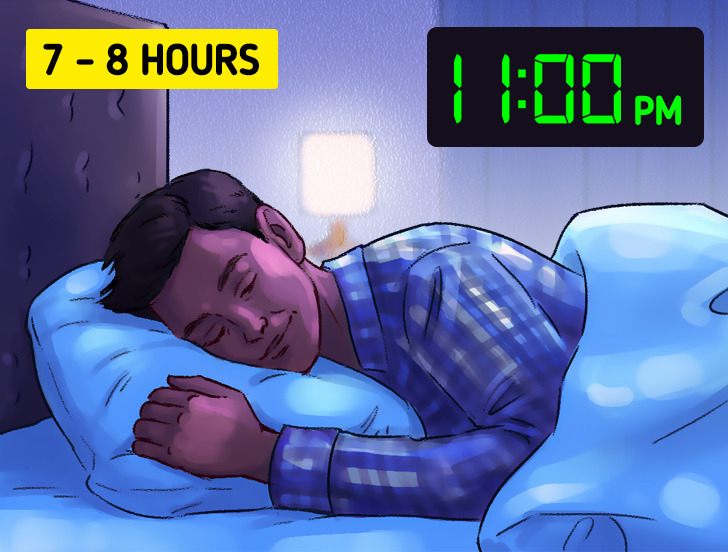How to Become a Morning Person
Having an early start to the day can be really challenging for night owls. Not only do they have a natural tendency to be more active and productive during the evening, but also most social activities tend to accommodate morning people (such as school and work). However, it is indeed possible to shift your sleep and wake cycles to fit your daily needs.
In this article, 5-Minute Crafts will detail some effective tactics to become a morning person so that you can feel more comfortable in the early hours of the day.
1. Evaluate the benefits to stay motivated.

First of all, it’s essential to ponder the reasons why you’ve decided to become a morning person. Maybe you want to be more productive at work, or you just want to stop waking up at noon to make the most out of your day. Whatever the reason it is, it’s important to analyze the benefits that will come with this effort, as this can help keep you motivated to achieve your big goal.
2. Practice good sleep hygiene.

The first step toward becoming a morning person is to start improving your sleep hygiene, which is a series of habits that lead to better sleep. This includes working out regularly, staying away from caffeine, and avoiding naps in the afternoon and evening.
Sleep hygiene goes beyond habits and it’s also about achieving the perfect bedroom environment to get a good night’s sleep: it’s ideal to create a dark, quiet, and cool atmosphere. In order to do this, you can block out the light by purchasing blackout curtains or buying some high-quality bedding. Also, you could get some peace of mind by keeping a clutter-free area.
3. Keep a consistent sleep schedule.

A regular sleep schedule helps you achieve certain health benefits. On the one hand, you’ll be on your way to getting the recommended 7 to 9 hours of sleep per night. Conversely, it’ll also make it easier to feel more energized throughout the day, so it’s a win-win scenario for your overall rest.
It’s important to have a consistent schedule because, according to some studies, sleeping in on the weekends can disrupt your circadian rhythm (that is, your body’s internal clock that regulates your sleep-wake cycles). So it’s better to make it a habit by sticking daily to your sleep-wake routines.
4. Gradually shift your meals and bedtime earlier.

- Your circadian rhythm is also closely related to your appetite — ideally, it’s better to switch to an earlier schedule so that your body can get used to a morning person’s routine. Night owls commonly have late-night meals, but this habit might interfere with the digestive process (which can still be taking place while you’re trying to sleep). This will make it harder to adjust to a new schedule, so opt for having an early meal instead.
- You should shift your bedtime to an earlier time too. After establishing a regular sleep schedule, try using increments of 15 minutes and set your alarm clock equally earlier. Take baby steps and do this change slowly, so take at least a couple of days in between each new shift to make them stick.
5. Develop routines for the morning and nighttime.

Morning routine:
- Use light as a natural alarm clock to gently wake up in the morning, either with a dawn simulator or by simply leaving the curtains open. If you do need an alarm, opt for melodic alarm noises over your standard ringtone because it’s better for shaking off the morning grogginess.
- Also, you can make your mornings more pleasant by scheduling activities that you can look forward to, such as a nice cup of coffee or a crossword puzzle. This will make it feel less like a chore and will give you the motivation to set a foot outside your cozy bed.
Night routine:
- Sadly, it’s not possible to turn off a switch and immediately drift off to sleep, especially if you’re trying to change your night owl tendencies. However, you can create a soothing routine that sends a bedtime signal to your brain. Try calming, relaxing activities that encourage drowsiness, such as meditation, aromatherapy, and reading books, among other things.
6. Use light strategically.

Your circadian rhythm not only is associated with your appetite and sleep schedule, but it’s also responsive to light and dark.
- Daytime: You will feel more alert if you get exposure to bright light in the early hours of the day. Also, this will naturally help shift your internal clock to an earlier wake-up time. It’s better if you can get some natural sunlight, but a light therapy lamp will also do the job.
- Nighttime: On the contrary, you should limit your exposure to devices that emit blue light because they stimulate a wake-up response. Avoid screens close to your bedtime, such as phones and tablets, and set up red bulbs that imitate sunset colors.
7. Reward yourself when you have small wins.

Research shows that rewarding yourself is a great way to keep your spirits high. According to science, people are more likely to stay motivated when pursuing a long-term goal if they celebrate small milestones. Therefore, as you carry on a plan for becoming a morning person, you can use daily or weekly rewards to stay on track. Start by writing a list of experiences and indulgences that can help you achieve your goal.